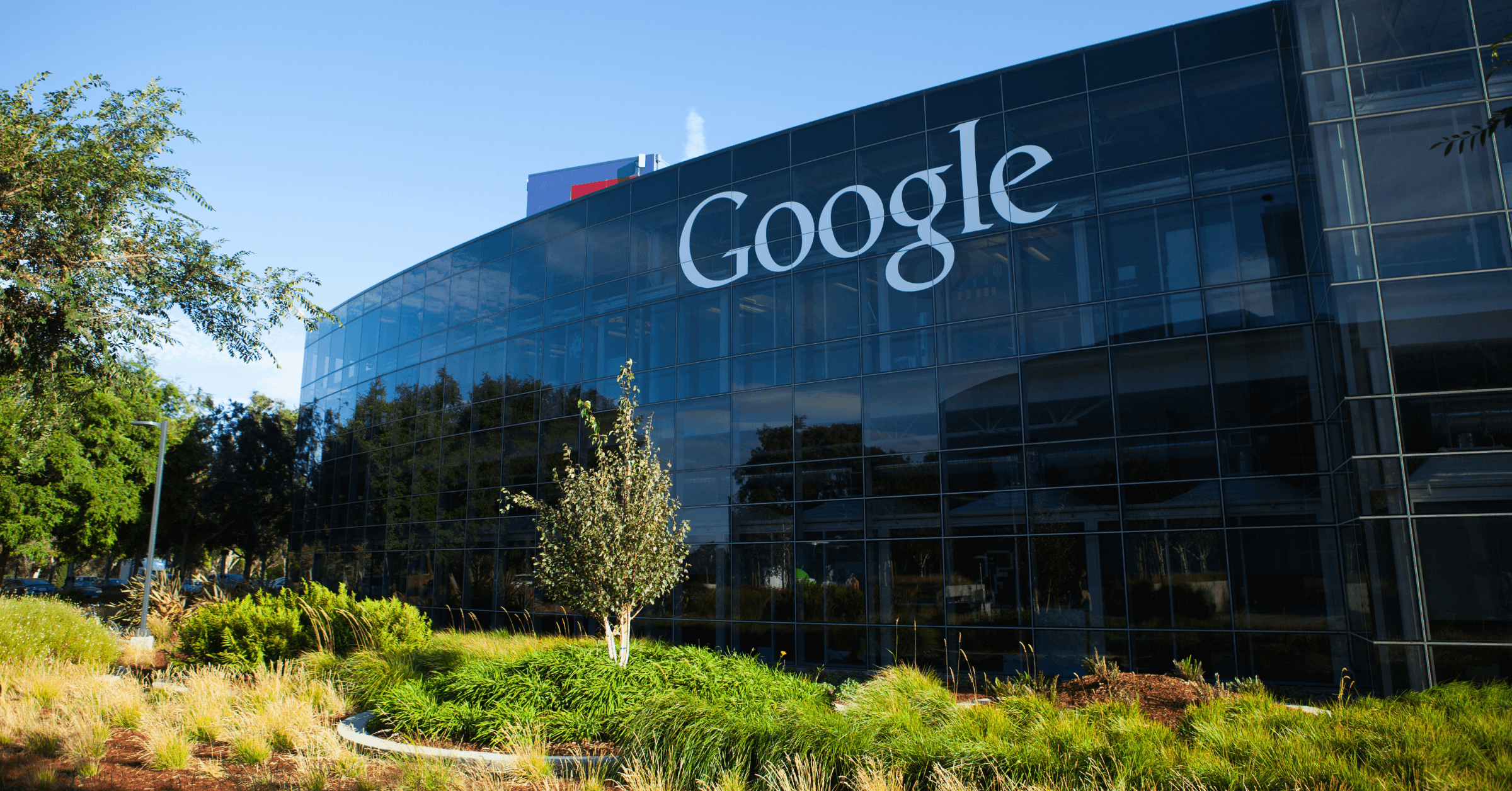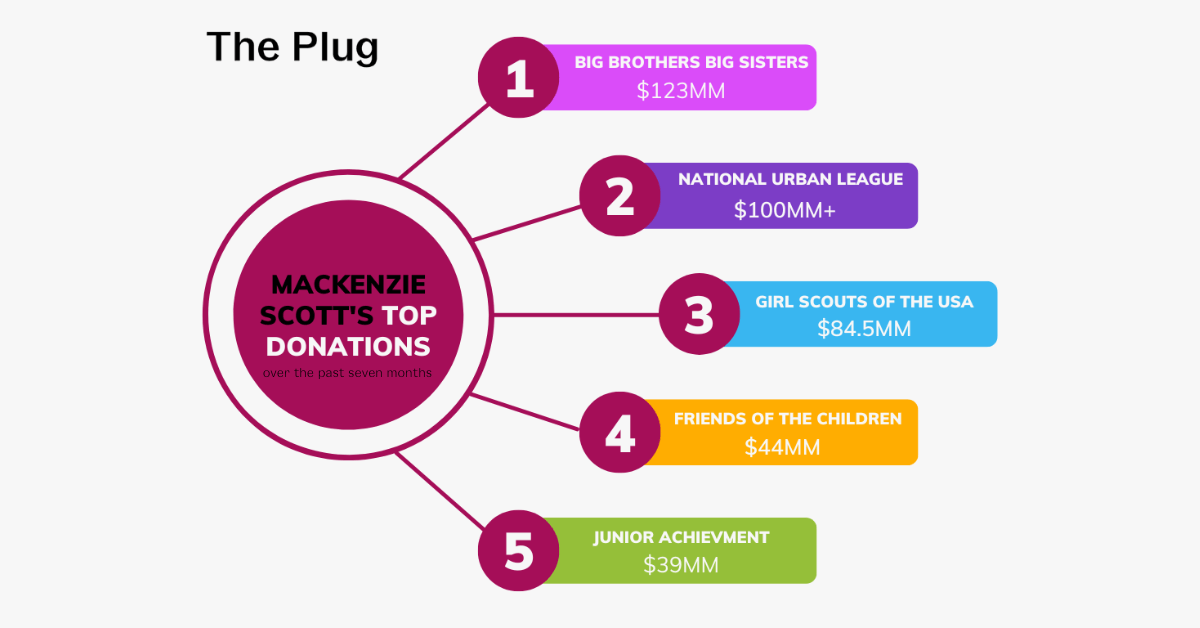Last summer, companies large and small across the US made statements against racism and police brutality, including global consulting firm McKinsey & Company. They laid out 10 actions they would take towards racial equity, one of which was establishing the McKinsey Institute for Black Economic Mobility. The institute has now been operating since December and aims to develop research on racial equity and inclusive economic growth, moving individuals and organizations to enact institutional changes and translating their insights into tools that have a real-world impact.
Now, one of their months-long research efforts has culminated in a new report, “The economic state of Black America: What is and what could be,” that outlines in stark numbers exactly how the country’s racial disparities are impacting Black Americans.
“The impetus for [the report] was, ‘How do we take a holistic view and understanding of how Black Americans participate in the economy?’” JP Julien, an associate partner at McKinsey and one of the founding members of the Institute for Black Economic Mobility, told The Plug.
Gaps in representation, participation and pay
The report found that Black workers face barriers and imbalances across the US economy, being disproportionately represented in low-wage jobs and 43 percent making under $30,000 per year. Among higher-paying jobs, Black Americans are massively underrepresented relative to their 13 percent share of the US labor force. For example, only 5 percent of US physicians and 4.5 percent of software developers are Black and Black workers are often paid less than their white counterparts. The disparity is even more stark for Black women — in about 85 percent of jobs with wage gaps, they are on average paid less than both white women and Black men.
Because of these gaps in representation and pay, McKinsey estimates that every year Black Americans make $220 billion less than they would if full parity across industries was reached.
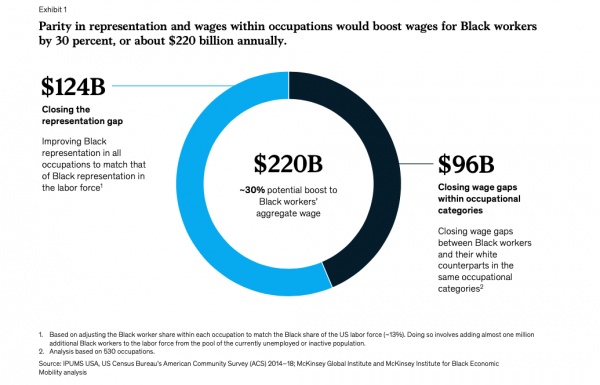
The future of the jobs Black Americans do have could also be disrupted. A 2019 report by the McKinsey Global Institute found that about 23 percent of jobs Black workers hold could be disrupted by automation. The new report from the Institute for Black Economic Mobility increases that potential to 42 percent of the Black labor force by 2030, now accounting for changes brought by the pandemic.
Similar disparities exist for Black business owners, too. Of the more than 5 million US businesses that employ at least one worker, only 124,000 — a little over 2 percent — are Black-owned. Black entrepreneurs often hit barriers early, beginning with gaps in securing startup capital. On average, Black founders start their businesses with $35,000 of capital while their white counterparts start with $107,000.
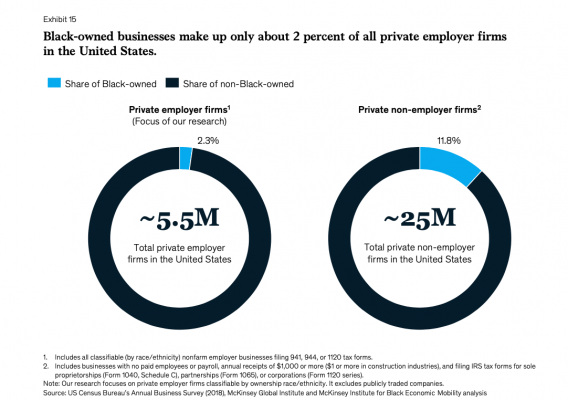
Black founders are also massively underrepresented in tech. There are only around 1,200 Black-owned information technology companies in the US, compared to nearly 69,000 non-Black owned companies. That less than 2 percent of tech companies are Black-owned has far reaching implications, affecting who is creating the tools that are shaping the world around us and how inclusive those technologies are.
A recent report by Fast Company, in collaboration with The Plug, found that big tech companies have committed $3.8 billion towards diversity, equity and inclusion efforts since last year’s pledges towards racial equality. The majority of those funds, $2.9 billion, have gone to initiatives that support Black-owned businesses.
McKinsey estimates Black-owned businesses would generate $1.6 trillion more than they do today if the Black share of business ownership was equal to the Black share of the general US population and if these businesses matched the average scale of their peers.
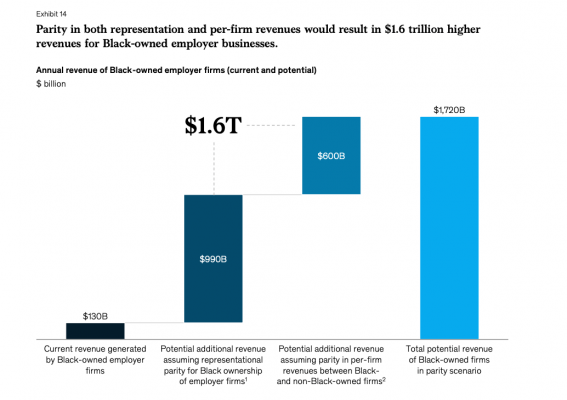
Not just livelihoods, but lives
As the report lays out, these racial disparities aren’t just numbers, but real-world consequences for Black Americans. Though they have existed in the US for centuries, the inequities were significantly sharpened by the coronavirus pandemic.
Black Americans are twice as likely to die from Covid than white Americans, according to the CDC. This has widened the racial gap in life expectancy to five years, and McKinsey estimates 3.4 million more Black Americans would be alive today if this gap didn’t exist.
But the report also lays out that the US has a chance to rebuild a post-pandemic economy that is more equitable and inclusive. Just by addressing wage disparities, two million Black Americans could enter the middle class for the first time, with cascading effects on generational wealth.
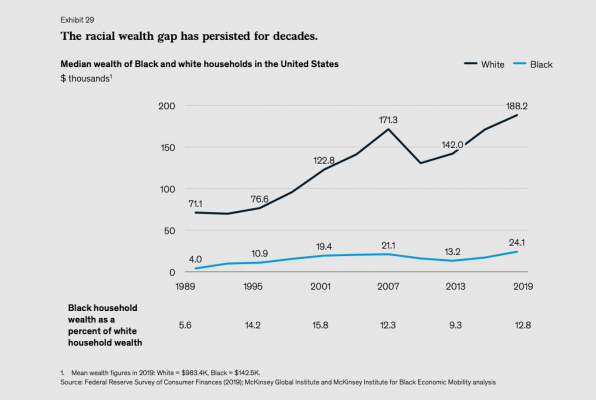
A 2019 McKinsey report examined the effects of closing the racial wealth gap. Beyond the individual effects of lifting Black Americans out of poverty, closing the gap could raise the US GDP 4 to 6 percent by 2028, the report estimated.
As one of McKinsey Institute for Black Mobility’s founding members, Julien hopes the report is a catalyst for change.
“It’s not a report that we wrote just so people can understand how disparate some things are, but actually the upside of what it would mean to fix it and how we can start thinking about solutions,” he said.
The report addresses how fixing these disparities will need multipronged, multiyear efforts from governments and the private sector. For example, to boost Black American incomes, employers can de-emphasize traditional credentials and hire based on aptitude and skills to try to eliminate biases in hiring. As to Black businesses, large corporations can increase the number of Black-owned suppliers they use, giving them an opening to scale up.
However, the report does not recommend any specific policies or legislation that could address things like minimum wage, employee benefits or other things that could also lead to systemic change in the US labor force.


